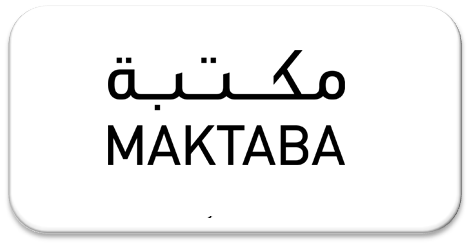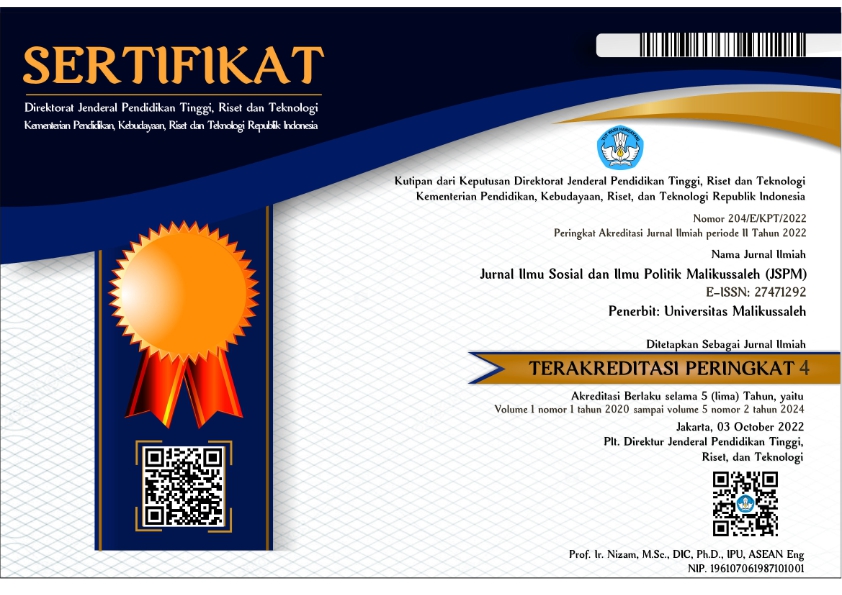SCRATCHING AKULTURASI BUDAYA DI PEDESAAN ACEH SINGKIL
Abstract
This research wants to reveal why and how the intercultural acculturation of the Aceh Singkil people after the 2015 religious conflict. This research wants to find new concepts, especially the local values of the Aceh Singkil people so that the religious conflicts that occur can be overcome. The researcher uses Mead's symbolic interactional theory in viewing action (cultural acculturation). In other words, in social interaction, actors are involved in a process of mutual influence. The qualitative method used in this study aims to find out what factors are capable of making the life of the Singkil community very harmonious and to find out the factors that are able to make the plural Singkil community unite and live in harmony. The results of this study show that the factors that scratched the relationship between community members and between religious communities in Suka Makmur Aceh Singkil were the construction of places of worship that did not obtain permission. The establishment of a place of worship that did not get a permit caused the other party to protest and ask for it to be controlled. The factors that make the pluralistic community of Suka Makmur Aceh Singkil able to unite are due to mutual respect and respect as well as the occurrence of cross cutting affiliation as members of the community.
Keywords
Full Text:
PDFReferences
Afiyanti, Y. (2008). Focus group discussion (diskusi kelompok terfokus) sebagai metode pengumpulan data penelitian kualitatif. Jurnal Keperawatan Indonesia, 12(1), 58–62.
Armansyah, A., Taufik, M., & Damayanti, N. (2022). Dampak Migrasi Penduduk pada Akulturasi Budaya di Tengah Masyarakat. Geodika: Jurnal Kajian Ilmu Dan Pendidikan Geografi, 6(1), 25–34.
Diharjo, S. M. (2020). Dinamika perubahan sosial dalam teori konflik. Jurnal Ilmu Komunikasi Dan Bisnis, 5(1).
Fasya, T. K., Yunanda, R., & Fariadi, D. (2023). Depoliticization of the Uleebalangs Descendants Due to a History of Past Violent Conflicts. Jurnal Ilmu Sosial Dan Ilmu Politik Malikussaleh (JSPM), 4(1), 102–111.
Hanafi, I. (2018). Agama dalam Bayang-Bayang Fanatisme; Sebuah Upaya Mengelola Konflik Agama. TOLERANSI: Media Ilmiah Komunikasi Umat Beragama, 10(1), 48–67.
Harahap, S. (2018). Konflik etnis dan agama di indonesia. Jurnal Ilmiah Sosiologi Agama (JISA), 1(2), 1–19.
Hartani, M., & Nulhaqim, S. A. (2020). ANALISIS KONFLIK ANTAR UMAT BERAGAMA DI ACEH SINGKIL. Jurnal Kolaborasi Resolusi Konflik. https://doi.org/10.24198/jkrk.v2i2.28154
Humaedi, M. A. (2014). Kegagalan akulturasi budaya dan isu agama dalam konflik lampung. Analisa: Journal of Social Science and Religion, 21(2), 149–162.
Istiqomah, A., & Widiyanto, D. (2020). Resolusi konflik berbasis budaya Tionghoa-Jawa di Surakarta. Jurnal Civics: Media Kajian Kewarganegaraan, 17(1), 40–49.
Koentjaraningrat, R. M. (1975). Anthropology in Indonesia: a bibliographical review.
Moleong, L. J. (2019). Moleong, ” Metodologi Penelitian Kualitatif Edisi Revisi”. Bandung : Remaja Rosdakarya. PT. Remaja Rosda Karya.
Muttaqin, H. (2019). Urgensi rekonstruksi sosiologi bagi kajian cyber society. Jurnal Sosiologi Reflektif, 14(1), 105–129.
Ritzer, G. (2012). Teori Sosiologi: Dari sosiologi klasik sampai perkembangan terakhir postmodern. In Yogyakarta: Pustaka Pelajar.
Setiawati, S. M. (2023). Rethinking of Local Election in The Unitary State: A Study Of Indonesia’s Politics. Jurnal Ilmu Sosial Dan Ilmu Politik Malikussaleh (JSPM), 4(1), 1–13.
Subekti, S. (2019). Pengalaman Akulturasi dan Resolusi Konflik Warga Keturunan Tionghoa di Semarang. Endogami: Jurnal Ilmiah Kajian Antropologi, 2(2), 111–118.
Sugiono, P. D. (2014). Metode penelitian pendidikan pendekatan kuantitatif.pdf. In Metode Penelitian Pendidikan Pendekatan Kuantitatif, Kualitatif Dan R&D.
Trijono, L. (2009). Pembangunan Perdamaian Pasca-Konflik di Indonesia: Kaitan perdamaian, pembangunan dan demokrasi dalam pengembangan kelembagaan pasca-konflik. JSP: Jurnal Ilmu Sosial Dan Ilmu Politik, 13(1).
DOI: https://doi.org/10.29103/jspm.v6i1.10837
 Article Metrics
Article Metrics
 Abstract Views : 151 times
Abstract Views : 151 times
Refbacks
- There are currently no refbacks.
Copyright (c) 2025 Akmal Saputra, Triyanto Triyanto, Irma Juraida, Khairan Khairan, Lilis Sariyanti, Cut Irna Liyana

This work is licensed under a Creative Commons Attribution-ShareAlike 4.0 International License.
INDEXED BY:




.png)









Redaksi Jurnal Ilmu Sosial dan Ilmu Politik Malikussaleh (JSPM): Gedung Fakultas Ilmu Sosial dan Ilmu Politik Universitas Malikussaleh. Kampus Bukit Indah Jln. Sumatera No.8, Kec. Muara Satu Kota Lhokseumawe, Prov. Aceh, Indonesia. eMail: jspm@unimal.ac.id

This work is licensed under a Creative Commons Attribution-NonCommercial-ShareAlike 4.0 International License



.png)



